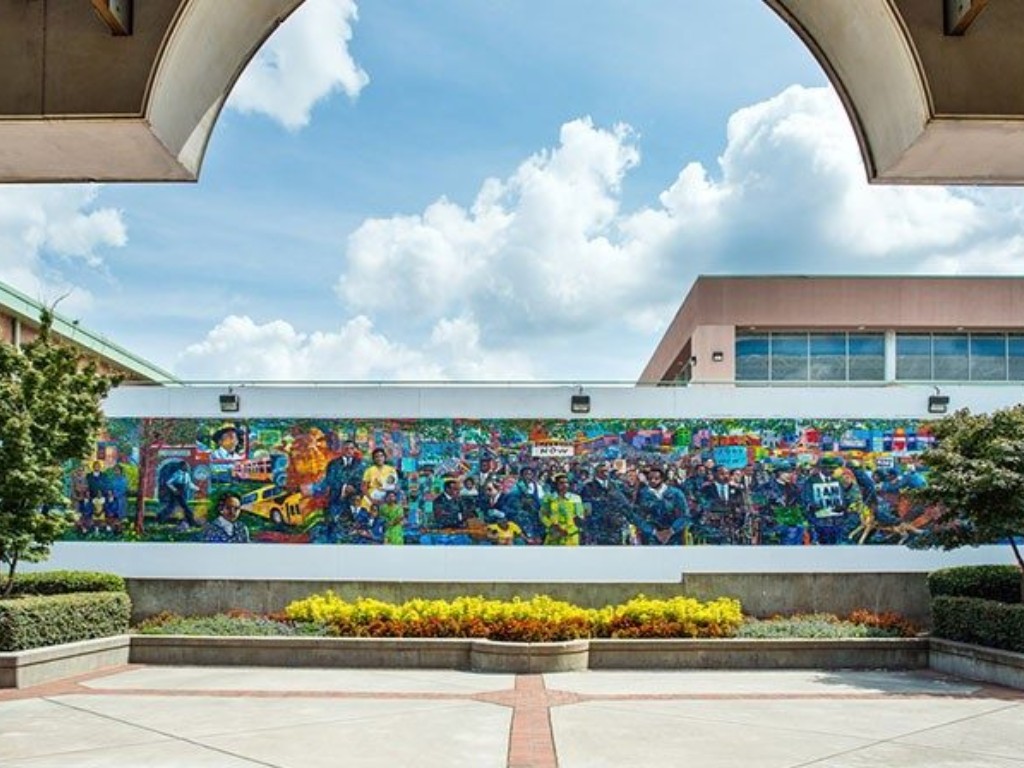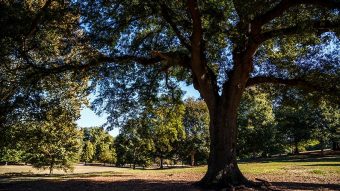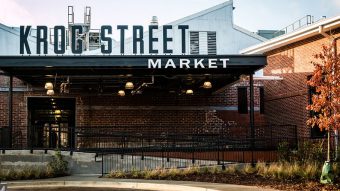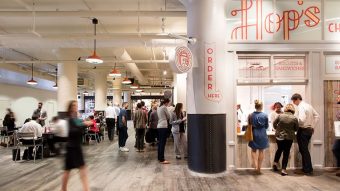As recently as 1960, segregation in Atlanta was firmly established and backed by state law, as it was elsewhere in the South. But even prior to the Civil Rights Movement, the city had shown more of a progressive attitude than others in the region. Small steps like the appointment of various black officials and the 1959 desegregation of public transport were already inching Atlanta towards change, and by the early 1960s the city had become a catalyst for the struggle that was to follow.
Activists based themselves in the city’s Sweet Auburn neighbourhood, just to the east of downtown Atlanta. Birthplace of Dr. Martin Luther King, Jr., it remains the best place in America to connect with his legacy and start an exploration of the city’s remarkable civil rights journey. We take a look at how the story is documented at five of the most important historic sites and attractions across town, including the new Center for Civil and Human Rights which opened in 2014.
King Birth Home
Located at 501 Auburn Avenue, the King Birth Home is just one of a number of buildings that make up the Martin Luther King, Jr. National Historic Site, run by the National Parks Service. Dr. King was born here on 15 January, 1929 and lived in the house with his siblings, Baptist minister father and music teacher mother until he was 12. By all accounts it was an ordinary childhood – he sang in the church choir, preferred football and baseball to learning the piano and wanted to be a fireman when he grew up – but the ranger-led tour gives a deeper insight into the familial and external influences that shaped him into one of the country’s greatest ever leaders. Rooms on display include the parlour, children’s play area, dining room – where the family regularly debated world events over meals – and King’s parents’ bedroom, where he, his brother and sister were born.
Tours of the home are free, last approximately 30 minutes and are filled on a first-come, first-served basis on the day. They run several times daily, between 10am-4pm but are often over-subscribed so arrive as early as possible: Sundays and early weekdays offer the best chance.

Ebenezer Baptist Church
Also part of the National Historic Site, this Gothic-Revival style building became known as the spiritual base of the Civil Rights Movement in the 1960s. Along with his father, who preached here for four decades, Martin Luther King, Jr. served as co-pastor until his death in 1968, working for voting and other rights and providing spiritual guidance to the African American congregation. For its role as an activist hub and as the site of King’s baptism and funeral, it’s an exceptionally meaningful symbol of civil rights in Atlanta.
In 2001 the church was significantly restored, including the preservation of stained glass windows, furniture, the balcony and a pipe organ. Today, the congregation has moved into a building across the street but members conduct tours of Ebenezer daily (9am-4pm Mon to Fri, 9am-2pm Sat, 2-4pm Sun).
The King Center
The building at the core of the National Historic Site is the Martin Luther King, Jr. Center for Nonviolent Social Change, established in 1968 by his wife Coretta Scott King and otherwise known as The King Center. As the official memorial dedicated to the advancement of his legacy and ideas, it is also home to the tomb where he and his wife are buried, surrounded by a reflecting pool. The center also contains several of King’s personal items, like his bible, clerical robe and the key to his room at the Lorraine Motel in Memphis where he was assassinated. But most of all it is a global resource centre for the Civil Rights Movement, and a destination for people to pay their respects.
The Center is located at 449 Auburn Avenue and is open 9am-5pm daily (6pm in summer). Admission and parking are free.
Sweet Auburn Curb Market
Located right in the heart of the Sweet Auburn neighbourhood, Sweet Auburn Curb Market was opened in 1924 in the aftermath of the Great Atlanta Fire. The name reflects the era when Atlanta was still living under racial segregation, at which point white customers could browse the entirety of the market but black patrons could only shop at curbside stalls, giving it the moniker ‘Curb Market’. King’s boyhood neighbourhood was the epicentre of African American life during the 1940s and 50s, and played such an influential role in the Civil Rights Movement that it was named a National Historic Landmark in 1976.
Today the market is a buzzy hotspot renowned for speciality Southern fare, ranked 16th best food market in the world by USA Today. Frequented by tourists, foodies, students, local business folk and the greater Atlanta community, it is open Monday to Saturday, 8am-6pm and houses 24 individual vendors, a bakery, bookstore and eleven popular places to eat.
Center for Civil and Human Rights
Opened in June 2014, the Center for Civil and Human Rights is Atlanta’s newest attraction. This inspiring facility connects the American Civil Rights Movement to present-day global human rights issues, and confronts the past, present and future of both via exhibits that bring visitors right into the subject matter.
Visit the Freedom Riders wall to pay homage to activists arrested during the movement; learn about global dictators while standing next to their (surprisingly short) life-size images; read the original writings of Martin Luther King, Jr. in the “Voices of the Voiceless” exhibit, or experience what it was like to be the target of unprovoked abuse at the replica lunch counter. Other parts of the center include an oral history booth where visitors can tell their own civil rights story, and an extraordinary water sculpture at the side of the building featuring two 30 foot glass panels.
The Center is located in downtown Atlanta between the Georgia Aquarium and the World of Coca-Cola at Pemberton Place. Open Monday to Saturday, 10am-5pm, Sundays 12pm-5pm. Entrance is US$18.25 for adults, US$14.25 for children.

A neighbourhood guide to Virginia-Highland

A tour of the Atlanta BeltLine

A guide to Ponce City Market in Atlanta
